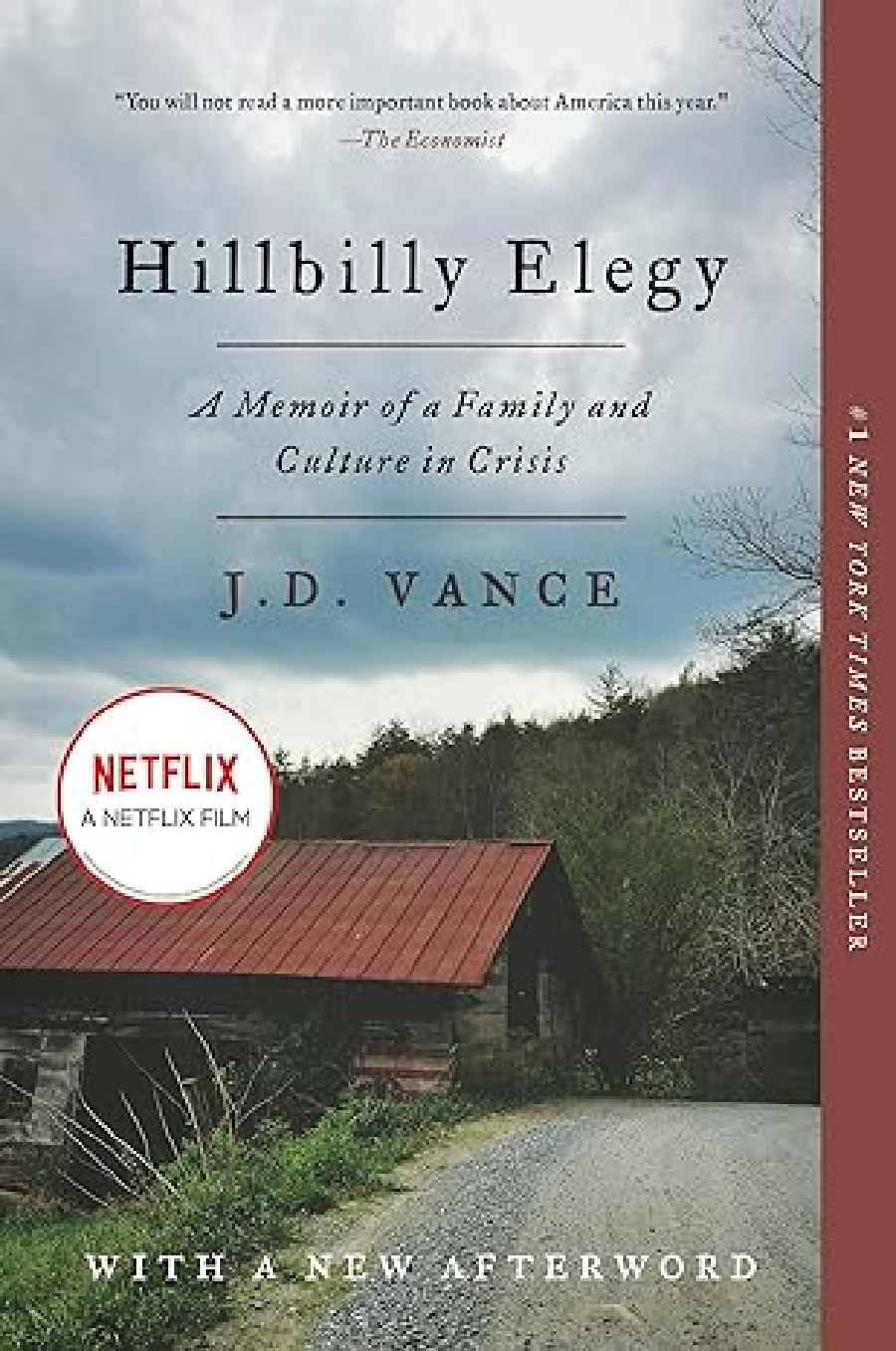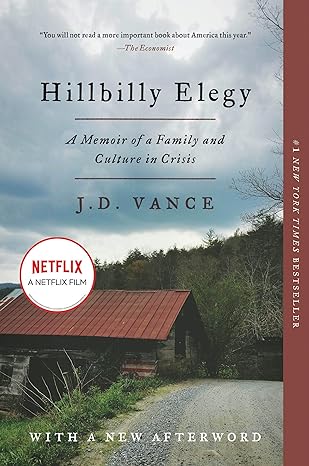The book by Vice-Presidential candidate J. D. Vance
As the blurbs go: a fascinating insight into the white underclass who voted for Donald Trump en masse, ensuring a Presidency like no other. The book The Deplorables may yet to be written. But Hillbilly Elegy comes mighty close.
It is one of those books which is most striking not for what it says, not for its lyricism or poetic insights, but simply because it exists. Because it tells a simple tale of life as it is lived.
Here is an extract from the Introduction:
Americans call them hillbillies, rednecks, or white trash. I call them neighbors, friends, and family. The Scots-Irish are one of the most distinctive subgroups in America. As one observer noted, “In traveling across America, the Scots-Irish have consistently blown my mind as far and away the most persistent and unchanging regional subculture in the country. Their family structures, religion and politics, and social lives all remain unchanged compared to the wholesale abandonment of tradition that’s occurred nearly everywhere else.”
This distinctive embrace of cultural tradition comes along with many good traits – an intense sense of loyalty, a fierce dedication to family and country – but also many bad ones. We do not like outsiders or people who are different from us, whether the difference lies in how they look, how they act, or, most important, how they talk. To understand me, you must understand that I am a Scots-Irish hillbilly at heart.
If ethnicity is one side of the coin, then geography is the other. When the first wave of Scots-Irish immigrants landed in the New World in the eighteenth century, they were deeply attracted to
the Appalachian Mountains. This region is admittedly huge, stretching from Alabama to Georgia in the South to Ohio to parts of New York in the North, but the culture of Greater Appalachia is remarkably cohesive. My family, from the hills of eastern ,Kentucky, describe themselves as hillbillies, but Hank Williams, Jr., born in Louisiana and an Alabama resident, also identified himself as one in his rural white anthem Country Boys can Survive. It was Greater Appalachia”s political reorientation from Democrat to Republican that redefined American politics after Nixon. And it is in Greater Appalachia where the fortunes of working-class whites seem dimmest. From low social mobility to poverty to divorce and drug addiction, my home is a hub of misery.
It is unsurprising, then, that we”re a pessimistic bunch. What is more surprising is that, as surveys have found, working-class whites are the most pessimistic group in America. More pessimistic than Latino immigrants, many of whom suffer unthinkable poverty. More pessimistic than black Americans, whose material prospects continue to lag behind those of whites. While reality permits some degree of cynicism, the fact that hillbillies like me are more down about the future than many other groups, some
of whom are clearly more destitute than we are, suggests that something else is going on.
Indeed it is. We are more socially isolated than ever, and we pass that isolation down to
our children. Our religion has changed – built around churches heavily on emotional rhetoric but light on the kind of social support necessary to enable poor kids to do well.Many of us have dropped out of the labor force or have chosen not to relocate for better opportunities. Our men suffer from a peculiar crisis of masculinity in which some of the very traits that our culture inculcates make it difficult to succeed in a changing world.
To buy on Amazon click here or on the image below.

